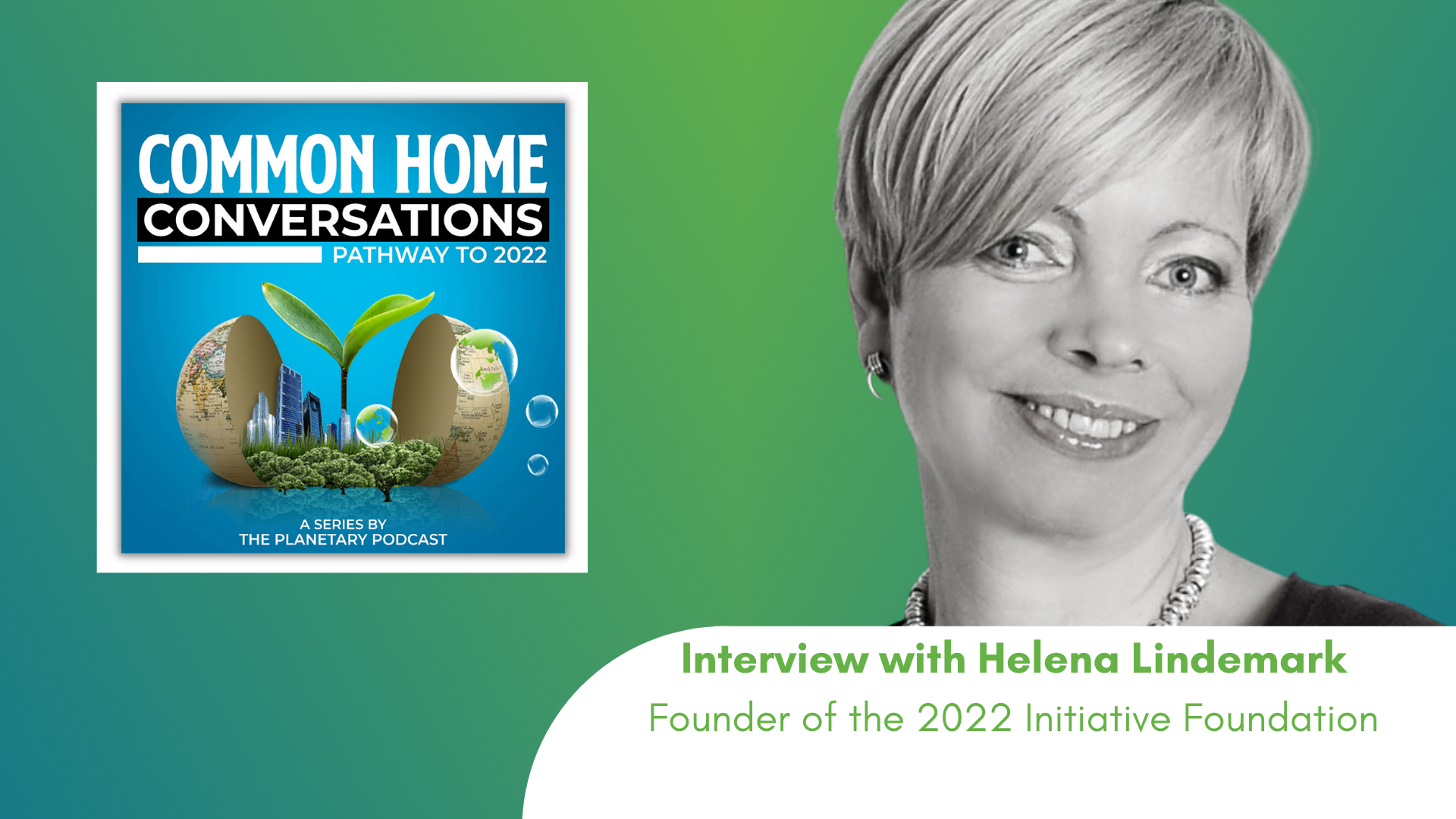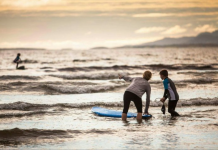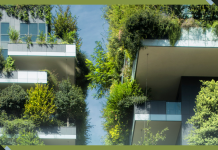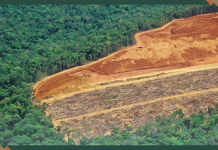Interview Transcript
Transcribed by Otter AI
Kimberly White
Hello and welcome to Common Home Conversations. Today we’re joined by Helena Lindemark, Founder of the 2022 Initiative Foundation. Thank you so much for joining us!
Helena Lindemark
Thank you for having me. Delighted to be here.
Kimberly White
Can you tell us more about your work at Sustainable Development Sweden AB and the 2022 Initiative Foundation?
Helena Lindemark
I’ll be glad to. Sustainable Development Sweden is a company that I started in 2014. It’s based on the fact that Sweden is many times seen as a role model within sustainability, and that’s something that I realized when I was working internationally with sustainable development, with trainings in particular. When I decided to work more in Sweden, I thought Sweden as a role model could be a good thing to speed up sustainability, both in Sweden and internationally. With that name and that purpose, there was a need for a bigger project. When I started to look for this project, I found Rachel Carson’s book, Silent Spring, in my parents’ house. That is a book that I had been talking about in trainings since the mid-90s, but I had never read it. But when I found it in physical form and read it, I realized, “Oh, my goodness, this book is actually from 1962, and we’re actually approaching the Silent Spring now.” This was back in 2014. I started to work with this in 1991 when I was at the United Nations in Bolivia, and thanks to the Rio conference in ’92, I got into these issues. I started to think, what happened between 1962 and 1992? I realized that one of the main reasons Sweden is seen as a role model is because we took the initiative and arranged the first UN Conference on Sustainable Development- the Stockholm Conference, or the United Nations Conference on the Human Environment- in 1972. And I realized, in 2022, it will actually be 50 years since that Conference, and we have a lot of solutions, so we should be able to make it until 2022, or at least we should be able to come far.
So I started to interview people involved in arranging this Conference back in ’72 and realized that this was very much a gamechanger and a pioneer within sustainability. Then in 2015, we had the agreements on the Sustainable Development Goals and the 2030 Agenda, and the climate agreement. That way, 2022 is not only the 50th anniversary of the Stockholm Conference and the formation of the UN Environment Program, but it’s also approximately halfway to 2030, since both those important agreements. So then we gathered a group, actually quite an international group, to talk about how we could speed up sustainability, including a short-term perspective because we talk about long-term goals all the time, 2030, 2050, and so on when it comes to climate change. But today’s leaders- the ones that decided on the Paris Agreement, for example- will not be in charge in 2030 probably. To get action from today’s leaders, we need a shorter perspective. So we need milestones on the way, not just 169 targets to define what the SDGs are about, but milestones and a midterm sort of assessment to speed up sustainability and get action now.
So I started to talk to ministers in Sweden in January 2016 about this opportunity. We set up our first website for the 2022 Initiative in September 2015, when the SDGs were decided upon. Well, the answer that I got, actually from the Minister of Environment in Sweden back then, was that “Yeah, it’s a great idea and very interesting, but 2022 is too far away for me.” I said, “What? Don’t you need to think a bit long-term when it comes to environmental sustainability?” She said, “Yes, but it’s after the mandate period. So, it’s not on my table; you need to talk to the Minister for the Future.” We used to have a Minister for the Future in 2016. So we managed to get a meeting with the Head of the Secretariat. They liked the idea very much, but, unfortunately, the government was changed two weeks later. So this idea about the 2022 Initiative was never actually presented to the Minister for the Future. But we continued working. In 2017, we formed the 2022 Initiative Foundation because one of the suggestions that we had with the Ministry for the Future was that, as a small startup company, it would be difficult to be involved in working with a UN Conference. So, therefore, we set up the Foundation in 2017. And then, also as the Foundation, it was a lot easier to work with, for example, the government, but also with academia. So we were part of a consultation they had in Sweden, right when a delegation developed a suggestion of a plan for Sweden’s work with the 2030 Agenda. We knew there was an answer to this. So in that answer, we had further developed our proposal so that we proposed to have the Stockholm+50 conference in 2022, that would be like a celebration of the 50th anniversary and formation of UNEP as well, and also to speed up sustainability and set up milestones to get action for 2022 and beyond. So, that is actually in a proposal on the Swedish government’s website since 2019. We also had meetings with the Secretary of State to the Swedish Prime Minister and the Swedish Vice Prime Minister in June 2019. They liked the idea, and at the end of November 2019, they decided that they want to host the UN Conference. And now, finally, it’s decided that there will be a UN Conference in Stockholm in June 2022.
Kimberly White
In 1972, Olof Palme, the Prime Minister of Sweden, initiated the United Nations Conference on the Human Environment in Stockholm, the first international conference on environmental issues. His speech at the Conference was remarkable! He said, “What is asked of us is not to relinquish our national sovereignty but to use it to further the common good.” He envisioned an international regulatory system to limit our destruction of nature and safeguard our common property and address our intergenerational responsibilities. His visionary speech is still completely up-to-date and with a line of action that is still not fulfilled today. How can Stockholm+50 honor his legacy?
Helena Lindemark
That’s a big question and a very important one because there are a lot of things to do in that speech. I mean, as you say, that speech could be held more or less as it is today. You need to add a little bit of the 2030 Agenda, the SDGs, and maybe a little bit of the Paris Agreement, and you’re done. It’s amazing that already in 1972, he could give that kind of a speech. Olof Palme wanted to change the world. He saw the linkages between population growth, poverty, pollution and that we need to change the way we’re living. He was brave. He stood up for the poor and even dared to criticize the U.S.- that was quite a big thing back then. This conference was very much focused on peace. Actually, for peace. Population, poverty, pollution, and peace. So those are very important parts of this speech and the legacy, and we need to do what he said. I mean, 50 years later, it’s terrible that we haven’t got further. And today, with a pandemic, we see a lot more poverty around the world. We have the 2030 Agenda, but we’re lagging behind, and we need to change our relationship to nature, as he was talking about, and see how these things are interconnected. He also mentioned that we need to start talking about ecocide. Now, even the Pope and the Secretary-General of the United Nations are talking about the need for legislation to stop ecocide. Hopefully, we will have something related to that at the Stockholm+50 conference.
Another thing that I think could be done, or should be done, to honor his legacy is to do documentaries. I’ve tried to bring that up in different situations but haven’t been able to get the funding for it yet. There are a few people still alive who were very active on a high level in that conference in Stockholm in 1972 that could tell a lot about how it was back then and what happened. There are a few people who could tell us a lot about how this speech was developed because it is incredible. I listen to it now and then and realize that this is still relevant and exactly what we need to do. Now, finally, we have the Sustainable Development Goals, the 2030 Agenda, and we have the Paris Agreement for the climate. I mean, the climate was not really on the agenda at the time, but we were approaching that situation very rapidly. Now, we need to speed up. Already in 1972, they were saying that we needed to speed up and to get into action now. Now, we are in this future scenario that I was talking about. I’ve been teaching about this since the mid-90s. We need to realize that we are part of nature. And to get a life worth living for future generations, we need to realize that we need to find ways to live in harmony with nature. That is actually something that Olof Palme was talking about back in 1972.
Kimberly White
Absolutely. Humankind depends on nature for everything, even our survival. For example, human encroachment into natural spaces impacts not only environmental health but also human health. The vast majority of new emerging and infectious diseases are zoonotic in origin- many of which can be linked to environmental degradation and biodiversity loss associated with the human disturbance of ecosystems. We’re completely interconnected. And I have to say, I would love to see a documentary covering his speech. It’s pretty astounding to read through it even now, 50 years later. He was truly ahead of his time, or perhaps it’s us who are severely lagging behind.
Helena Lindemark
Exactly. We need to realize that we’re interconnected, and our well-being and the well-being of the planet are definitely interconnected, not just the planet, the whole biodiversity, and wildlife. We cannot take and extract from nature and see it as something that we can just use for our own purposes, just for greed. We just need to change that thinking. We’ve been thinking way too long that we can just extract and use nature for our own purposes, but nature hits back. I mean, the planet will survive. But we won’t. We might be Red Listed.
Kimberly White
Exactly. We are destroying what is most valuable to us- our common home- and not taking the action that we need to take to solve these environmental crises we’re facing. You’re right; nature does hit back. We have witnessed that this year with the floods happening throughout Europe and Asia, the fires in Siberia and the Pacific Northwest of the United States, etc.
Helena Lindemark
We’ve known what would happen for decades. Now, we’re in this future that researchers have been talking about. We have to face the facts and deal with it. Actually, I was moving a couple of months ago, and I found these overhead slides that I had bought from the Swedish Environmental Protection Agency. This is very interesting because they were from 1995, and they were talking about a scenario of the future in Sweden, in 2020, and that we would see more extreme weather events, there would be droughts and fires, potentially, and there might be flooding. So yeah, they were right. Unfortunately, we didn’t act fast enough to stop things. But hopefully, these things that are happening now can make us do that.
Kimberly White
I think it’s a wake-up call for a lot of people.
Helena Lindemark
Maybe we just need to realize it. I mean, just hearing it and from scientists and so on, maybe it’s not enough. Maybe we just need to choose to experience it for ourselves or see people in other parts close to us experience these things, to understand that it’s actually happening and that it’s a fact.
Kimberly White
I think when we’ve talked about climate change in the past, especially in places such as the United States, it was something that was happening in some far-off place, thousands of miles away. It wasn’t something that was happening to us- not yet, anyway. Now, it is something that is happening here. It is happening right now. It’s going to continue to happen at a much faster rate. Unfortunately, some people won’t realize the seriousness of this issue until they have to experience it themselves. But we need to keep working towards concrete action now and not wait until it’s too late.
Helena Lindemark
Yeah, I do hope that what’s happening in relation to the pandemic can help us to realize this as well.
Kimberly White
Definitely, as terrible as COVID has been, it has also given us an opportunity to rethink what we’re doing and rethink our relationship with nature. It has been said that we are not going to solve the climate crisis without also solving the inequalities that members of our global community face. Conferences such as the Conference of the Parties (COP), the United Nations High-level Political Forum on Sustainable Development (HLPF), etc., sometimes find themselves criticized for their lack of inclusiveness. The overall goal of Agenda 2030 is to “leave no one behind.” How can these conferences become more accessible to ensure all actors have an opportunity to participate in a meaningful way and no one gets left behind?
Helena Lindemark
As it is now, we have the pandemic. Next June might be the first occasion when most countries can have at least a few delegates in Stockholm. As it is now, most of these high-level meetings are digital. When I was part of the Swedish Delegation of the High-Level Political Forum, it was very clear that in some countries- the poorer countries, of course- they don’t have internet access to the extent that is needed to be part of this Conference. They were thrown out once in a while because they lost their internet connection- and that’s terrible. Some of the targets of the SDGs that are prioritized were supposed to be reached by 2020. None of them were actually reached by then. One of those targets is SDG 9.c, which is universal access to information and communications technology. So that is something that we need to speed up to get everyone involved and leave no one behind at UNEA, Stockholm+50, and even at the COP26 conference coming up soon. We are getting vaccination programs in Europe, the U.S., and so on, but there are many countries in Africa, Latin America, and Asia that do not have that possibility. Then they will have to participate in the digital forum. A lot of countries- especially in Africa- do not have these digital solutions or technology needed. So that is something that we need to solve before that in order to include everyone.
Kimberly White
Absolutely. It’s evident that we need to accelerate our ambition in order for the world to achieve the Sustainable Development Goals. However, it’s important that we don’t work on them in silos. We need to make sure our solutions do not exacerbate existing environmental or social challenges facing our global community.
Helena Lindemark
We need to solve this together. We’re in this together, and we need to solve it together. This is something that even Olof Palme said in 1972. So what we’re doing in the 2022 Initiative Foundation is that we arrange dialogue meetings. In the dialogue, we always include speakers and stakeholders from the public sector, civil society, academia, business, and also youth as key actors because it’s their future that we’re talking about and that we need to solve. It’s very important to include children and youth in these dialogues, Stockholm+50, and in the work ahead towards Stockholm+50 because most of the things that we need to address and to get action on need to be done before June 2022. At that time, we will only have two days of the conference, but most of the work will need to be done before. So we definitely need to speed up the preparations for this now.
Kimberly White
It’s important to ensure that everyone has a seat at the table. I think the Stockholm+49 Summit in October is going to provide a good opportunity for people to learn more about the Declaration and also discuss what they think should be in the Declaration.
Helena Lindemark
That’s very important. I’m very much looking forward to October. Hopefully, we can agree on something. There are some things that definitely need to be included or that I would like to see included. One of those things is that we need a systems change. Our current economic system is not sustainable and is focusing more on leaving behind than inclusion. It doesn’t realize that we are part of nature. We need a rethink our relationship with nature and realize how we can live in harmony with nature. This question of ecocide- it would be quite good to see some form of international legislation 50 years after, with some form of a decision in relation to ecocide since Olof Palme mentioned it already in 1972.
Also, this part about milestones is very important to include at the Stockholm+49 Summit. There is work going on on science-based targets, in particular the environment-related Sustainable Development Goals. Those science-based targets are focusing mainly on business and, to some extent, on cities. To reach the SDGs by 2030, we need to have milestones along the way. Ideally, at least, milestones that are set. So we’re not standing there in 2028 asking for those exponential solutions to reach the SDGs by 2030 that we just don’t have.
So I do hope that we will be able to celebrate with everybody on June 3rd that we have come far and that we are on our way to reach the SDGs and solving the climate crisis. Sweden seems to be in the lead when it comes to sustainability, but that is on average. When it comes to SDGs that are related to the environment- for example, climate- we are lagging behind. We have a lot of things to do. Also, SDG 12 on Sustainable Consumption and Production is one of the most tricky ones that we need to work on. But one thing that I would love to see from Sweden is that we set- maybe not at the start of the Stockholm+49 Summit, but before the Stockholm+50. Conference- a clear climate plan that would make us compliant with the Paris Agreement because our current plan doesn’t even come close to that.
Kimberly White
I think that’s a hope a lot of people around the world share, especially as their governments bring forth new targets with the upcoming COP conference in Glasgow. The time for action is now. I’m very optimistic about the Stockholm+49 and Stockholm+50 conferences. This is a great opportunity for civil society and world leaders to come together and take real, concrete action and steer us in the right direction to stabilize our planet and protect our common home.
Helena Lindemark
Exactly. This is a unique opportunity. Stockholm+49 is perfect in timing to accelerate action. Because we need to see that Stockholm+50 and UNEP at 50 are mutually reinforcing, this is a unique opportunity to connect history from 1972- or even 1962- to today and to see that we create the future we want.
Kimberly White
All right, and there you have it. We are destroying what is most valuable to us- our common home. We need to recognize that our well-being and the well-being of the planet are interconnected. We must heed the words of Swedish Prime Minister Olaf Palme spoke at the historic 1972 Stockholm Conference. We cannot continue seeing nature as something we can just take from solely for our own purpose- nature will hit back. It is time we rethink our relationship with nature or risk being Red Listed. That is all for today, and thank you for joining us for this episode of Common Home Conversations Pathway to 2022. Please subscribe, share, and be sure to tune in on September 8th to continue the conversation with our special guest, Jojo Mehta, Co-Founder and Executive Director of Stop Ecocide International. And visit us at www.ThePlanetaryPress.com for more episodes and the latest news in sustainability, climate change, and the environment.
For more episodes, visit Common Home Conversations Pathway to 2022







